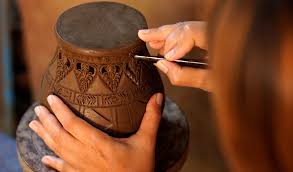In recent years, there has been a notable resurgence in the popularity of do-it-yourself (DIY) culture, with individuals increasingly turning to homemade and handcrafted goods as a means of self-expression, creativity, and sustainability. This article delves into the reasons behind the flourishing DIY movement, explores its various facets, and celebrates the revival of craftsmanship in today’s society.
The Rise of DIY Culture
Embracing Creativity
In a world dominated by mass-produced products and standardized designs, many people are seeking opportunities to express their creativity and individuality through DIY projects. Whether it’s knitting, woodworking, or soap-making, DIY allows individuals to unleash their imagination and create one-of-a-kind items that reflect their personal style and preferences.
Sustainable Living
The DIY movement is closely aligned with the principles of sustainability and environmental stewardship. By making things themselves, individuals can reduce their reliance on disposable products, minimize waste, and embrace a more eco-friendly lifestyle. From upcycling old furniture to making homemade cleaning products, DIY enthusiasts are finding innovative ways to live more sustainably.
Exploring DIY Across Different Domains
Home Decor and Design
DIY has had a significant impact on the realm of home decor and design, with many people opting to personalize their living spaces through handmade decorations, furniture, and artwork. From macrame wall hangings to custom-built shelves, DIY allows homeowners to infuse their spaces with personality and charm.
Fashion and Accessories
In the realm of fashion, DIY has become a means of self-expression and experimentation. From sewing their own clothes to crafting unique accessories, individuals are reclaiming their sense of style and breaking away from the homogeneity of fast fashion. DIY fashion encourages creativity, individuality, and ethical consumption practices.
The Benefits of DIY
Personal Fulfillment
Engaging in DIY projects can be deeply rewarding on a personal level, providing a sense of accomplishment and satisfaction. The process of creating something with one’s own hands fosters a sense of pride and fulfillment that cannot be replicated by store-bought goods.
Community Building
DIY culture fosters a sense of community and camaraderie among like-minded individuals who share a passion for creativity and craftsmanship. Whether it’s attending a crafting workshop or joining an online DIY forum, DIY enthusiasts have numerous opportunities to connect with others, share ideas, and collaborate on projects.
Celebrating the DIY Renaissance
As DIY culture continues to flourish, it is evident that homemade and handcrafted goods are more than just products—they represent a movement towards self-sufficiency, creativity, and sustainability. By embracing the DIY ethos, individuals can rediscover the joy of creating, connect with their communities, and make a positive impact on the world.




